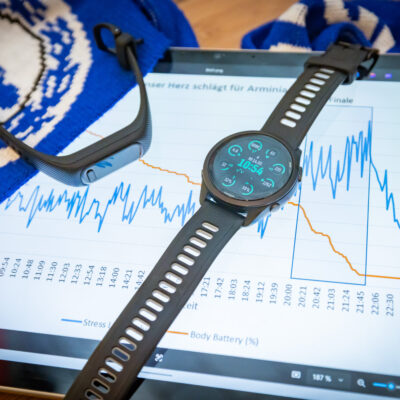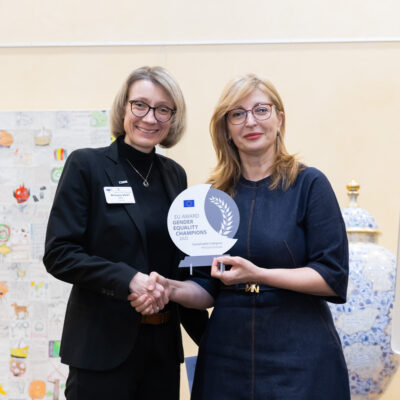How can companies make well-informed decisions – faster, more efficiently, and more fairly? This question is at the heart of the European research project CoRDS (Confident Data-Driven Decision Support). Coordinated by Professor Dr. Kevin Tierney from Bielefeld University’s Faculty of Business and Economics, the project brings together a Europe-wide network to merge artificial intelligence and optimization methods in a way that is not only powerful, but also transparent, robust, and fair. Funded by the EU under the Marie Skłodowska-Curie Actions (MSCA Doctoral Networks) program, the project will receive a total of 4.6 million Euro until 2029 and will train 15 doctoral researchers at the intersection of research and practice. The goal: to develop the next generation of decision support systems – alongside the experts who will lead them.
Whether it’s the fair distribution of blood donations, efficient control of shipping containers, or equitable allocation of healthcare resources—organizations today face complex, dynamic, and often conflicting decision-making challenges. Traditional Operations Research (OR) tools, while mathematically sophisticated, typically require in-depth expert knowledge and respond only in limited ways to new data. Machine Learning (ML) approaches, however, can process large datasets and recognize patterns, but are often opaque and ill-suited for decisions with complex constraints.
A European Network for Better Decisions
This is precisely where CoRDS comes in: by integrating OR and ML, Data-Driven Optimization (DDO) methods are developed that are both data-informed and structurally sound. CoRDS not only advances these methods, but also ensures their practical application through a tailored training program—including collaboration with industry partners such as Hapag-Lloyd, Allianz, Sanquin, Elsevier, OPTANO, and Cargoful. What sets the project apart is its focus on making these methods not only technically efficient, but also trustworthy in the context of European AI regulations—that is, explainable, robust, fair, and transparent.
At the heart of CoRDS is an interdisciplinary doctoral network with 15 individually supervised PhD projects. Research topics range from deep reinforcement learning for logistics processes to transparent assignment procedures in scientific peer review systems, and fair optimization models for organ transplantation. Each PhD candidate will complete at least one multi-month industry secondment with a partner company to apply their methods to real-world problems. The program is complemented by PhD schools, online seminars, a planned MOOC series, as well as joint publications, open-source toolboxes, and benchmarks to ensure sustainable knowledge transfer.

© Sarah Jonek/Universität Bielefeld
Why CoRDS Is a Key European Project
The project is strategically significant for European innovation in several ways:
First, it offers urgently needed training for a new professional profile—experts at the intersection of AI, optimization, and ethics. Second, it promotes the development of trustworthy AI systems that align with new EU regulations and seek public acceptance. Third, CoRDS focuses on real-world application domains of high societal relevance: transportation, healthcare, energy efficiency, publication processes, and industrial production. Finally, the project contributes to several UN Sustainable Development Goals, including climate action, access to healthcare, and reduced inequalities.
Bielefeld not only serves as the scientific coordinator of the project, but also hosts several PhD positions of its own. In doing so, the Faculty of Business Administration and Economics actively contributes to setting new standards for data-driven decision support—responsible, application-oriented, and deeply connected across Europe.
Innovative Training Network
The EU Framework Programme for Research and Innovation “Horizon 2020” is funding the network as a Marie Skłodowska-Curie Innovative Training Network (ITN). With the newly approved projects, Bielefeld University is now involved in a total of twelve ITNs. The networks conduct research in disciplines such as chemistry, education, computer science, physics, psychology, and economics. Bielefeld University serves as the coordinating institution for five of these networks.




